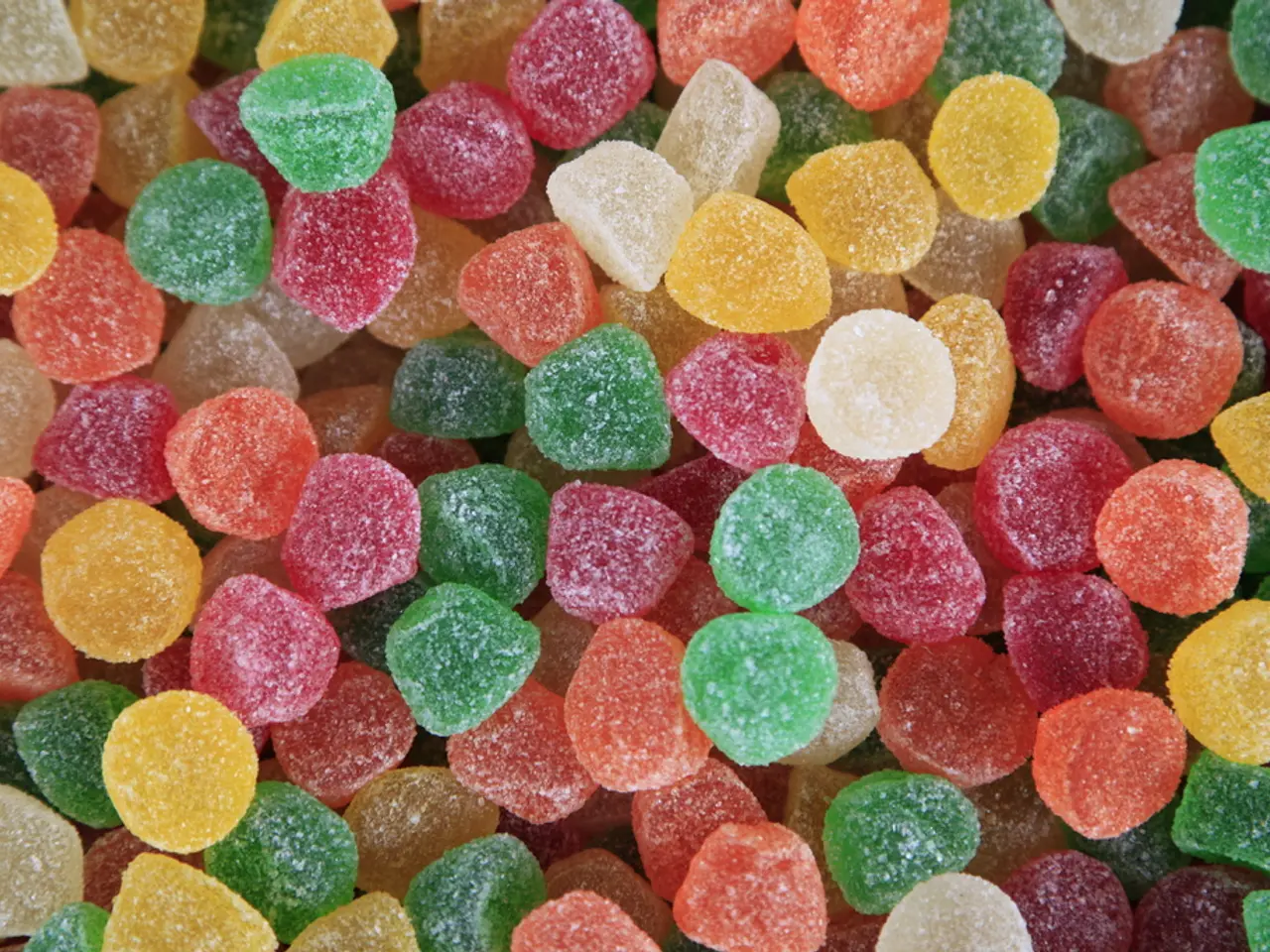"Identifying the Ideal Sugar for Preparing Homemade Kombucha"
In the world of kombucha brewing, the choice of sugar plays a significant role in the fermentation process. Here's a rundown of the recommended sugars, their characteristics, and what they bring to your brew.
First up is Evaporated Cane Sugar, a minimally processed form of white sugar. Easy to find and affordable, it's a popular choice for kombucha fermentation due to its neutral taste. However, it may not offer the nutritional benefits of less refined sugars.
Organic White Sugar, refined with few impurities, is another common choice. It promotes healthy fermentation but lacks nutritional benefits compared to less refined alternatives.
Brown Sugar, refined white sugar with added molasses, provides a distinct flavor and some minerals from molasses. However, the added molasses can vary in amount, potentially affecting fermentation.
Honey and other natural sweeteners are rich in nutrients and flavor. They offer a natural sweetness with potential health benefits. However, they contain bacteria that may compete with the SCOBY, and some honey types might be contaminated with other sweeteners.
For a typical kombucha recipe, you need about 1 cup of sugar per gallon of water. However, the exact quantity can vary based on personal preference and the desired level of sweetness.
Using sugars in kombucha offers several advantages. They promote fermentation, providing energy for the SCOBY, and they enhance flavour, with different sugars imparting unique flavors to the kombucha.
On the downside, refined sugars are stripped of nutrients, and some sugars, like honey, can inhibit SCOBY growth due to their bacterial content. Consuming high amounts of refined sugars can also be detrimental to health.
Alternatives to refined sugars include using fruits during the secondary fermentation stage, experimenting with spare SCOBYs to ensure safety and optimal fermentation conditions when trying new sugars, and using sugar during the flavouring stage to rebalance the sweetness if the kombucha is too acidic.
In conclusion, the choice of sugar in kombucha brewing is crucial. While refined sugars are commonly used due to their neutral taste and affordability, natural sweeteners like honey offer unique flavors and potential health benefits. Always remember to experiment with your brew to find the perfect sweetness for your taste buds.
Science shows that the choice of sugar plays a vital role in kombucha's health-and-wellness benefits and taste. For instance, cooking with brown sugar in kombucha lifestyle can offer a distinct flavor and some nutrients from molasses, while food-and-drink options like Evaporated Cane Sugar are easy to find and affordably promote neutral taste.




